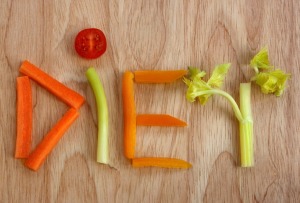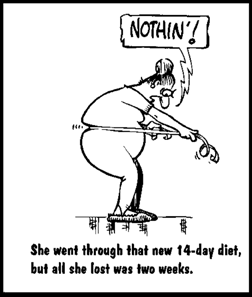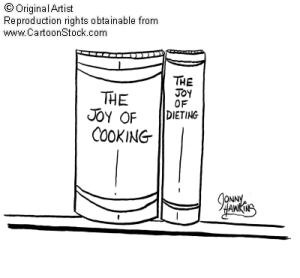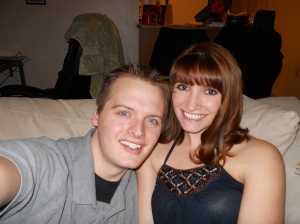You are currently browsing the tag archive for the ‘eating disorder’ tag.
The picture album in my mind is full of food. It leaves room for little else. Breakfast, lunch, and dinner—dissected and cataloged. It would seem all I ever do is eat. Or not eat.
My 15-year-old Birthday. I’m told there was a sleepover. A group of friends from school gossiping about boys and teachers. I see a picture my mom took; a friend is dressed up in a mermaid costume and everyone is laughing. I am noticeably absent. Perhaps I was staring down the sugar-free, fat free ice cream cake my mom had special-ordered from TCBY. Because that’s all I can remember from that day.
A family vacation to Disney World. I’m trying hard, I swear I am. My sister and I run, carefree through the park, laughing at inside jokes. We watch a parade as it rolls down the street. Fireworks light up the night sky, casting shadows across the ground. This is what I tell people when they ask me about my trip. But if I’m telling the truth, all I remember is the fight I had with my dad over whether I would eat another bite of chicken.
The first day of college, standing in front of the salad bar, I have a panic attack when I realize they don’t have fat free dressing. I don’t remember what my dorm mates looked like or the classes I took. But I remember that fucking dressing.
My wedding day. Everyone tells me to stop a moment and take it all in—you only get married once they say. I look through my wedding album, am amnesiac patient sifting through the ruins of her life. The hair, the nose, the awkward rolls of fat where I wish there were none. That girl in the pictures is clearly me. I flip through and see a picture of a towering cake, laced with delicate, pink fondant flowers. 400 calories a slice easily. And now I remember. While everyone else was dancing and drinking and being merry, I was worried about how much cake my husband had shoved in my mouth.
This is what my memory has become. Moments defined by my relationship to food. A life defined not by what I achieved, where I’ve been, or whom I loved. Only by what I ate.
If I could I’d erase all these images. Hope to make room for something else. But there in their too deep, and I am tired of fighting.
Can anyone relate? Please share your stories in the comments.
One year ago today I wrote a blog called 27 Reasons in celebration of my 27th Birthday. It listed 27 reasons how overcoming anorexia changed my life. Reason #26 on that list was: “I can become a mom (this is a big one and has not always been a reality).” One day after writing this I found out I was pregnant with my now 15 week old son, Oliver. So this year on my Birthday, in keeping with tradition, I give you reasons #28. I am the mom to a beautiful baby boy.
While motherhood has had it’s fair share of struggles, when I think of everything I’ve already overcome to have him, I wouldn’t trade in my sleepless nights and spit-up stained shirts for anything.
But oh how easy it is to lose perspective in the moment. When Oliver is red-faced and screaming in my ear and my relief is hours away from coming home from work I find myself wondering if I’m really capable of being a mom. Am I strong enough? Compassionate enough? Patient enough? Do I have the fortitude to see this through? When I start to have my doubts all I have to do is think back on my past struggles. Overcoming anorexia required all those attributes that I am now calling into question. If I possessed them then, if I could do the seemingly impossible, what makes now different.
Most of us are capable of more than we think and it just takes a little reflection to realize it. Isn’t that what past trials are all about anyway? Building up a memory bank of successes and of exceeded expectations. What if I started to view motherhood in that way? Undoubtably there will be a day in the not so distant future when I find myself facing another challenge. With my back against the wall and my reserves almost on empty I will question if I am enough. And then I will think back to these past 15 weeks. I will remember that I survived and came out a stronger woman, and I will smile and move on.
Okay so that’s not true at all… the baby was probably cringing at all the sugar coursing through my digestive system (nothing like getting them hooked at an early age right?) Truth is, I really wanted a doughnut and a decaf coffee, so without much thought at all, I drove to Tim Horton’s and purchased the following:
It was delicious and thoroughly enjoyed in moderation. No feelings of guilt, regret, or panic. Will I be eating more doughnuts again anytime soon? Probably not…although I did enjoy a cupcake the other day for my father-in-laws Birthday. But hey, it wasn’t a doughnut. Cupcakes and doughnuts are completely different food groups. Duh!
Another blog prompted by a comment from a stranger at the gym. I’m starting to consider intrusive strangers my new muses.
During a recent trip to the gym, I found myself dragging my pregnant, lethargic, still-sore-from-yesterday’s-workout legs onto the elliptical to get in my recommended cardio for the day. About fifteen minutes into the heart pounding, sweat inducing torture I knock the resistance down a little and give my normally primed for speed interval legs a rest. Today was simply not my day for pushing it. The older gentleman on the elliptical next to me, upon seeing the slow-down, felt obliged to interject some grade-A motivation.
“You’re slowing down already?” he asks. “You gotta give it 100%.”
 Note: actual man was not wearing suit and tie at gym.
Note: actual man was not wearing suit and tie at gym.
He smiles sweetly and turns back to focus on his non-sweat producing, resistance level one workout. Really?
I fake a smile and continue chugging along at my slower pace. Just say no to peer pressure! Does he not realize how hard my workout was yesterday, I think angrily. No, probably not. Does he not realize how poorly I slept last night because it takes hours of tossing and turning to find a comfortable side-sleeping position for my pregnant belly? No again. Oh yea, and does he not see I’m clearly pregnant? Hopefully that last one just a little. (Unless he’s conspiring with Jeff from my previous post)
I don’t say these things to make excuses for my actions; I hate making up excuses as much as I hate needing an excuse to begin with (unless of course it’s why my husband is out of clean boxers once again). But sometimes it just isn’t practical to always be going full-throttle or giving it 100% effort, 100% of the time.
I made this unfortunate mistake in college. I knew if I studied enough studied until I memorized the textbook, I could get a near 100% on anything. I tortured myself with multi-day study sessions for 10-question quizzes. I became a shut-in at times with only my coffee pot and sugary snacks to keep me company. Friends would invite me out, but I’d be too busy memorizing the name of Abraham Lincoln’s childhood pet (a pig named Fido in case you were wondering) or the diameter of Mars. I believed that if I could get a %100, I should, no matter how much it interfered with my (sometimes nonexistent) life outside of school. Try my best I did! I tried and I tried and I tried until trying my best became who and what I was about. By senior year I had trouble grasping the idea of “enough.” What do you mean when you say give it “enough” effort to get an A? What is this elusive, mystical word you speak of? It’s either all or nothing. I either succeed or fail, and anything less than all my effort is decidedly failure.
If only I were as enlightened then as I am now.
Following college I started and stopped a couple different graduate programs and a handful of sub-stellar jobs, all of which I was less than enthused about. I would begin a program with my college ambitions and attitude, realize I didn’t feel driven or passionate enough about what I was doing to put forth 100% effort, and because I couldn’t put forth 100%, well I might as well not even try. I became a habitual quitter. I felt awful, like a flat out, no-good failure. The fortunate thing about hitting this low is that it afforded me the opportunity to reflect on how I had somehow gotten things so wrong.
For me, this light bulb moment came on a warm summer day when I was out running in the park.
 In the park on a not so sunny day, do something that is decidedly not running.
In the park on a not so sunny day, do something that is decidedly not running.
After submitting yet another resume to potential employer # bajillion, aka, “another employer who won’t even send me a rejection letter,” I was desperately needing to vent my frustrations. I hit the path with the intention of going full-speed-ahead until all my anger and pent-up despair was lying in sweat puddles under my feet. Only a couple minutes into the run I felt tired, and my lead laden legs begged me to slow to a jog. This apparent weakness annoyed me and I pushed on in defiance, forcing my legs to keep the steady pace. An internal soundtrack played through my head.
Dana’s Motivational Soundtrack
1. The You’ll Never Be Good Enough Blues
2. Give it All or Give Up Boogie
3. Baby Say Bye Bye Bye to Your Dreams
4. You’re not a Survivor
5. Oops I Messed Up Again
6. Rumour Has It You’re a Failure
I couldn’t put it on mute or flip the station. I began to cry. Cry, sniffle, inhale, exhale. Cry, sniffle, inhale, exhale. Cry, sniffle, cry, sniffle, cry, sniffle. Must. Stop. Running. To. Catch. Breathe. I came to a halt about a mile down the trail and hobbled to the nearest bench to sit down.
I can’t even run well anymore. I’m horrible at everything. I used to be so motivated and dedicated, what happened?
What did happen? I asked myself. Why was I so unhappy?
I thought back over the last couple years about the effort I put into pursuits that didn’t interest me. I thought about the all or nothing attitude that usually led to nothing and about how tired and defeated I felt from putting 100% effort into everything I did. What would happen if I didn’t always try my best? What if I gave 100% effort only to those things I really care about and 90% to everything else? What if I let the situation I’m in and my abilities at that moment determine how much effort I put forth? Is it okay to be less than my best?
I got off the bench to finish the last two miles of the three-mile loop, continuing on at a slow but steady jog. I took in the smell of the woods around me, the light glinting through the tree tops, and the sound of squirrels running across remnants of dead leaves. I reached my car feeling calm, happy, and accomplished. I hadn’t given it my all; I couldn’t finish the run saying I put forth 100% effort, but I could say I finished. And finishing, feeling happy and at peace, was more important at that moment than fast.
Today I live by the 90% rule. I give 90% effort, 90% of the time and save my 100% effort for the 10% of the time when it really counts. What I’ve discovered time and time again is that while my effort levels may have gone down 10%, 90% of the time, my enjoyment of life has gone up 100% almost all of the time.
I now let my effort level be determined by the situation I’m in and the amount of passion I feel for a given pursuit. If I’m having a hard day or I’m physically and emotionally drained I let myself slack a little. Ah, “slack,” it used to sound like such a dirty word. If I’m forced into a task I feel less than thrilled with, say a boring project at work, I do it well enough.
 How I’m usually feeling at work.
How I’m usually feeling at work.
I’ve detached myself from the belief that nothing but the best will do and attached myself to the notion that “good enough” often leads to more happiness. And I’ve learned over time that when I’m happy, it’s much easier to put my good foot forward and be at my best.
After 30 minutes on the elliptical, I hit the stop button and step off the machine. “You’re giving up already?” the nosy man next to me asks.
“No,” I respond, “not giving up, just accepting that good enough is my best for today.”
I’m minding my own business at the gym the other day, happily meandering around the weight room when one of the “fitness consultants” approaches.
 (How bad-ass I imagine I look) Source
(How bad-ass I imagine I look) Source
“Hey, you’ve been working out here for awhile now, but I don’t think I’ve ever learned your name,” he says casually. Hmmmm, I think to myself, it’s probably because I have no desire for you to know my name. My antisocial, just leave me alone and let me work out in peace attitude starts to surface.
“I’m Dana,” I politely respond stifling my inner bitchiness.
“Hi Dana, I’m Jeff**.” He extends his hand. You really want to shake my hand right now? Can you not see how sweaty I am? I politely shake his hand, intending to end our little exchange and get back to lifting. But Jeff persists, “I can’t help but notice you look like you’re losing some of the definition in your stomach. If you want to set up a session with me I can show you a great workout to tighten that area up.”
I glare at Jeff with my “I can’t believe you just said that, I’m ready to go all psycho on you and rip your head off” eyes. He doesn’t seem phased. I muster up the gumption to interject but Jeff continues.
“A lot of women notice that has they get older (excuse me, when has 27 ever been classified as old?) it’s easier to accumulate fat around the midsection. But if we go over your diet and exercise plan I’m guessing there are some simple changes we can make to keep that from happening.”
Can your diet and exercise plan remove this baby from my midsection? I’m sure that would tighten things up quite a bit you ass. I almost say this out loud, but I decide to let him continue knowing that once I do reveal I am pregnant, not just the fatty he is implying I am, he will feel like an even bigger ass. Sometimes I can be a little evil.
Jeff continues on about the importance of high intensity interval training for fat burning and avoiding sugar because it turns to fat. “Do you want to go downstairs with me for a consultation?” he asks. “We can get some baseline measurements for weight and waist size. Give me four sessions and I’ll bet we can knock a whole inch off your waist and 5lbs off the scale.” Do these aggressive, make you feel like shit tactics really work on most women?
I finally decide to spare Jeff any further humiliation, plus he set himself with that last statement. “Well Jeff,” I say “I don’t think my doctor would approve of me losing 5lbs right now, but if you want to wait until mid July, I’d be more than happy to drop say 6-8lbs all in one day and you can take full credit, although my husband might not like that.” I’m relishing in the confused look on his face. I wait long enough for there be that cinematic, dramatic pause. “Yea, I’m 19 weeks pregnant.”
A flash of understanding crosses his eyes, and I’m expecting him to apologize and wander off to find some other girl with an expanding midsection to torture. But instead Jeff surprises me. “Oh, you didn’t really look pregnant.” He laughs a little too confidently. “In that case, definitely look me up later in the summer and I can help you get off all that baby weight.” I cannot believe this guy. Oh Jeff, yes of course the first thing my former anorexic midsection wants to do after giving birth is come find you to be ridiculed and shamed. It would be the start of such a beautiful relationship.
I desperately search for something snarky to say, but in the end all I can think of is “no thanks,” and I walk away.
The world is full of people like Jeff: well intended but clueless. They make comments that lead you to question your self-worth, your beliefs, and your inherent goodness and beauty. They’re ready with a snap judgment or inappropriate remark that can bring you down even when you’re feeling on top of the world. You can’t avoid them because they’re everywhere. And unfortunately, despite my desire to mark this Jeff with a big, flashing neon sign that read Unintentional Jerk, they don’t come with any warning label or exterior sign of inner thoughtlessness.
The best remedy for a Jeff is to educate and move on. If you’re feeling brazen enough (which I was not at the time) tell him or her that, while you’re too confident to be brought down by their comment, other people not as tough as yourself might find it hurtful. Your advice might register with them, but since I don’t call them “clueless” without reason, it probably won’t. In that case, just walk away. Everyone views the world and the people in it through a unique lens. The way one person sees you does not truthfully reflect who you are as a person. It only reflects who you are through the personal experiences and biases of the person looking. Work on creating the most favorable, forgiving, and loving lens through which to view yourself. In the end, that’s the only perspective that really matters.
In the meantime, if anyone does come up with a good “jerk tagging” system, please let me know. I’ll spearhead the campaign!
**Name has been changed to protect the identity of said fitness consultant (you’ll see why he needs protection in a moment).
The shirt I contemplated buying but decided it wasn’t worth spending $20 to flaunt my insecurity:
“Expect to gain 25-30 lbs over the next 30 weeks,” the doctor said. “Really,” she paused to chuckle “after week 20 it’s going to be hard not to gain a pound a week.”
Those words sound eerily familiar. Almost eleven years ago, I was sitting inside another doctor’s office, albeit one filled with a plush “tell me all your problems” couch and a box of tissues instead of an exam table and lubricating gel, but the message was the same. “Our goal is for you to gain about 30 lbs over the next 3 months, say about 2 pounds a week.” My reaction eleven years ago: I burst into tears, hide my face in an oversized sweatshirt, and silently promise to myself that I will do no such thing. My reaction one week ago: the most nonchalant “okay, sounds good” you can imagine. My how far I’ve come.
Before my husband and I even discussed children, long before I even knew if I wanted kids at all, I was convinced I could not have them. With the slightest mention of babies or grandkids, I would ardently declare, much to mother’s dismay, “I’m never having children…EVER!” Even though I knew it was something I wanted, my fear that I would not be able to have them overtook any optimism and faith I could muster. After years of damaging my body and depriving it of the essentials it needed to develop, how would it have the energy or vitality to create another life? I viewed myself as damaged goods, as irreparable. I labeled my body as defective, and decided I deserved whatever was coming to me. My mind was ready to accept defeat; my body on the other hand, was not.
When I begrudgingly took the first home pregnancy test, I thought I was being paranoid. When the test came back positive I assumed it was defective. When the second came back positive, I believed the whole box to be defective. When, two months later, I looked at the ultrasound monitor and saw our baby for the first time, I was still in disbelief. I was convinced that the image on the screen would display an empty nothingness, but instead, I saw wiggling arms and legs, a defined head, a body, and a heart that was beating despite all my fears and doubts.
Now, I feel like the ambassador, like the protector of this new life growing inside me. I can’t officially claim the title of “mother” yet, but my maternal instincts have kicked into high gear. “What’s that ghost of an eating disorder? You don’t like the idea of gaining weight, of putting someone else’s health and well being above your desire to restrict, to binge, to purge? Well guess what, I don’t care.” It’s interesting how easy it is now to shut off the voices in my head that belittle and try to convince me my worth is only skin-deep. It was so difficult when I was only standing up for myself, but now I’m standing up for two, and like the saying goes, strength comes in numbers.
I’m not going to lie; I am terrified of becoming a mom. I’m terrified of the power I will soon wield over another person’s life. I’m terrified of the responsibility to nurture, strengthen, inspire, teach, motivate, and love and on the flip-side, the potential to destroy, letdown, scar, and demoralize. I instantly want to protect this baby from every future hardship, from scraped knees to broken hearts, but I know that those are the trials I can’t control once he or she enters the world. But right now, while he’s still just a small fig-sized** baby inside me, I do have the power to protect him. And protecting him from the backlash of my neglected, kicked-to-the-curb eating disorder voice is the least I can do.
Today, at eleven weeks 2 days pregnant, when I look at the small image of the baby hanging on our refrigerator, I’m truly amazed. My body has done what my mind perceived to be impossible: it has healed.
**Thank you babycenter.com for all your fruit and vegetable references. Although, I had to wait until week 11 to post this because normal people don’t know what your week 10 fruit, a kumquat, looks like.
I’ve officially been a “Mrs.” For 6 months, 8 days, 19 hours, 29 minutes, and 24, 25, 26 seconds. On May 28th in front of family, friends, and, thanks to our parents’ extensive guest lists, about 60 other people I barely knew (but was glad they were there), our carefully crafted ceremony ended with the quote, “Love each other and you will be happy. It’s as simple and as difficult as that.”
After hours of scrimmaging through online databases of quotes on marriage, love and friendship I happened upon this decidedly simple yet very poignant message. To me, it says three things. First, loving someone, oneself included, is an active process. It is a choice we make, and it requires our conscious decision to do so. Second, despite the simplicity of the statement, choosing to love someone, choosing to accept that person wholly with all his or her faults can be effortful. Third, love can lead to happiness.
As much as that quote applies to married life, I chose it because it is also highly applicable to the relationship people have with themselves. In our complicated adult world filled with anger, disappointment, fear, and shame, making the choice to love ourselves can be difficult. More than any other person in our lives, we see all the shortcomings, all the faults, and all the bad decisions, and we dissect and analyze them to the point that they define us. It’s often easier to believe that we are unworthy of love, and that we are deserving of all the bad things that happen to us. It’s often easier to ward off disappointment by viewing oneself as a failure, but this way of thinking does not lead to happiness.
To choose to love oneself is perhaps the greatest gift we can give ourselves. To do so is to say, “I believe in my own worth.” When we overlook our flaws, and forgive our indiscretions, when we seek out our strengths and focus on all that we have to offer the world, we put ourselves in a position where choosing to love ourselves is easy. Too often in life, we are taught to set low expectations to ward off disappointment. ‘You’ll be happily surprised if things turn out better than you thought,’ we are told. But if we repeatedly expect disappointment in our lives, if we are repeatedly choose to believe we are inferior and don’t think we are worthy or loveable, we create an environment ready to confirm our deepest fears.
When I was younger I remember someone telling me “You have to learn to love yourself before anyone else can love you.” While I don’t think this is entirely true, I do believe that people who love themselves and are at peace with themselves are more open to accepting love from others. If I have a hard time finding redeeming qualities about me it’s going to be difficult allowing people into my life who do. Likewise, when you love yourself, you exude an air of confidence and pride that others pick up on. Tell someone you possess a certain quality, whether it’s true or not, and others are likely to see that quality in you. Love yourself, and others will follow suit.
The best thing about learning to love oneself is that it often leads us to act in ways that confirm our worthiness. Think about this. Imagine the last time you were feeling down or even outright depressed. What did you do all day? If I am sad, I often lie around feeling lethargic, cry on and off (sometimes I don’t even know about what), and put off completing things on my to-do list or reconnecting with friends. At the end of the day, when I look back and think about what I’ve accomplished, I come up with a big, fat zero. My behavior throughout the day only serves to make me more depressed and the depression only leads me to behave in more counterproductive ways. It’s quite the vicious cycle. Now imagine this same process occurring but on a day when you feel great about life and about yourself.
In a way, by controlling our actions, we have a lot of power over how we see ourselves. By choosing to act in ways that reinforce our worthiness, we build up a store of positive feelings that lead us to behave in more life-affirming ways. Remember what I said at the beginning about this process being effortful, well here is where that effort comes into play. Choosing to act in a manner consistent with loving oneself will be extremely difficult if you don’t already love yourself. Just like choosing to act happy is hard when you’re depressed, choosing to treat yourself with kindness will be hard if you don’t feel worthy of such kindness. But it’s something that must be done, one small step at a time.
During this holiday season, let’s work on extending the same good will toward ourselves that we so eagerly hand out to others. Love yourself and you will be happy; it’s as simple and as difficult as that.
Today, November 5, 2011, I turn 27. For me, Birthdays have always been a time for reflection. I like to look back over the last year, not to dissect my mistakes or contemplate the “what ifs” but to appreciate how much I’ve grown and changed. This year marks my 10th year in recovery from anorexia. In honor of my 27th Birthday, I came up with 27 reasons why recovery is worth it and why I never want to go back to that dark place.
1. I can look in the mirror and think I look fat, see the scale go up a pound, or feel my jeans getting tight and still manage to have a GREAT day.
2. I rarely look in the mirror and think I look fat, in fact, most days I feel beautiful.
3. The relationships I have with people are more important than my relationship with food; sadly this was not always the case.
4. I have 10x more free-time because I don’t spend hours counting calories or fretting over my next meal.
5. If I get an offer to go out with friends, I don’t have to consult my workout schedule first.
6. I respect the needs and desires my body has instead of trying to suppress them, and I focus on all the amazing things my body CAN do, like this…
 Rock climbing in Joshua Tree National Park
Rock climbing in Joshua Tree National Park
and this…
 Snorkeling off the coast of Maui
Snorkeling off the coast of Maui
and this…
7 I have constructive tools for dealing with problems instead of behaviors.
8 I no longer lie to the people I love, and as a result, I have earned the trust I never thought I deserved.
9. My behaviors no longer worry loved ones, and they don’t have to walk on eggshells around me, afraid I might break.
10. I define myself by my character and morals, not a number on the scale.
11. Shopping for new clothes is fun, no matter what size the label says.
12. When I go to the beach, I’m thinking about the beauty of the ocean, not the visibility of the cellulite on my ass.
13. I find serenity and peace in stillness instead of restlessness and anxiety, and I can enjoy yoga without thinking “I should be running right now.”
14. Running in the park is a form of relaxation, a way to connect with nature and feel alive, not a method for burning calories.
15. I can now spend my “me” time quietly reading a book or watching a movie instead of crying, trying to qualm my anxiety, or feeling alone and hopeless.
16. My body functions and feels better: my skin, hair, and nails are healthy; I have unlimited amounts of energy, and I’m not cold all the time.
17. Holidays are a time to have fun with family, relax, and eat good food…not an occasion to freak out over all the treats waiting to tempt me.
18. I am a better listener because my mind is not consumed with eating disorder thoughts.
19. I am a better friend because I can focus on other peoples’ problems instead of being consumed by my own.
20. I have the ability to do this at my wedding.
and eat this…
21. When in public I no longer think everyone is judging me, and when I run into an old friend I’m enjoying the reunion instead of fretting over whether they think I’ve gained weight.
22. I’m no longer ashamed of my naked body, allowing me to spend naked-time in more “amusing” ways than analyzing my butt in the mirror.
23. I can eat hotdogs at baseball games, cotton candy at amusement parks, and cake and ice cream on my Birthday without the lingering guilt.
24. Snuggling with my husband feels better when I’m not all skin and bones.
25. I can write this cooking blog with my husband just for fun and actually eat the food we make.
26. I can become a mom (this is a big one and has not always been a reality).
27. I am alive to see another year filled with opportunity and hope.
Sticking to a meal plan, whether recovering from an eating disorder or not, is challenging. Just like any other diet*, it can easily be thrown off course by unanticipated or emotionally triggering events. In fact, studies have shown that 95% of all dieters are back at their starting weight within 5 years of beginning a program. While this statistic commonly refers to those on a weight loss regimen, I believe there is a lot of crossover between the problems weight-loss-dieters and weight-gain-dieters encounter.
When I was just out of inpatient and diligently following my meal plan, I was surprised to find that what tripped me up the most wasn’t always the food or the impending weight gain. It was family and friends that didn’t quite understand what I was doing and why. I can’t count the times a well-intended friend pushed a batch of fresh baked brownies my way saying, “I thought you could eat this now.” Well, I would think to myself, I can eat brownies, just not those brownies. I need a brownie made with portion-controlled ingredients measured out with military precision that has been weighed on a digital scale to the exact gram. But since that was quite a mouthful and begged a dozen questions I wasn’t prepared to field, I tended to revert to the polite, “no thank you.”
While adhering to a meal plan often temporarily introduces a whole new slew of food rules, it affords the peace of mind that you are eating within allowable parameters. In a sense, the meal plan gives you a “ticket to eat,” or as my therapist referred to it, “a food prescription.” Initially, it is important to strictly follow the plan as you restore weight, normalize eating, and work through emotional baggage. Going off plan too early can be a slippery slope leading to relapse. Unfortunately, friends and family have the potential to confuse the new recovery-focused food rules for eating disorder behavior. If you combine that with the misunderstanding that recovery from an eating disorder is an overnight occurrence it’s easy to see why the unintentional sabotage occurs.
To help you stick to your meal plan when up against uninformed or unsupportive friends and family members I’ve assembled a list of tips that really helped me.
1) Get comfortable saying NO
You’re armed with the meal plan and you know what you need to eat. If someone offers you food that doesn’t fit in with your recovery plan, just say no. With food and emotions so closely intertwined perhaps saying no to grandma’s home-cooked lasagna or fresh-baked cookies will hurt her feelings, but right now that can’t be your top priority. Thank her for the offer, say no, offer an explanation if your feel comfortable, and then move on.
2) Educate others
Tell those closest to you about your meal plan. If they know what you are doing they will be able to offer support and encouragement instead of criticism or misplaced advice. This also makes you accountable to eat the food on your plan.
3) It’s all in the preparation
Don’t get thrown off because you had to work late, came home tired, and now your family is beckoning you to come eat the pizza they ordered. If you are at a point where you can do some quick mental math and substitute pizza for your planned meal, great! If not, make sure you have some quick back-ups in place, think supplemental drinks, frozen foods, or prepackaged snacks (or, thanks to your newfound raging metabolism, all three).
4) Offer to cook
Do you have a hard time getting your family to understand why you measure everything? Would you like to eat the same meal as everyone else but can’t get the cook to accommodate your needs? Cook a meal for everyone. When you are in the kitchen you can measure the ingredients in your meal to get an accurate count and, unless someone is watching you, they probably won’t be any wiser to what you are doing.
5) Ask for modifications
You never know how accommodating your family will be unless you ask. To this day when I am having a rough day with food I ask my husband to whip out the kitchen scale to make sure my meal is xxx calories. He understands the important role meal planning plays in recovery, and is always willing to oblige. But getting up the courage to ask him is the first step.
6) Get a wingman (or wingwoman)
A wingman comes in handy when your reserves are running low and you can’t bear the thought of explaining one more time why you brought your own food to (insert any family holiday or social gathering). A good wingman can deflect questions, support your decision, encourage you in the face of disapproval, and be your personal advocate in recovery.
7) Be resolute in your recovery
Following a meal plan 100% of the time is hard. If you don’t know why you’re doing it, then it becomes 100x harder. Work on getting to the root reasons for why you want recovery (making a list is helpful-as well as countless hours in therapy) and then work on understanding the important connection between meal planning and recovery.
So gather your measuring cups and spoons, the kitchen scale, and nutritional guides and commit yourself to meal planning. Because in the end, whether or not your family members and friends are on board, you are only accountable to yourself.
* I am referring to a way of eating, not calorie restriction.





























